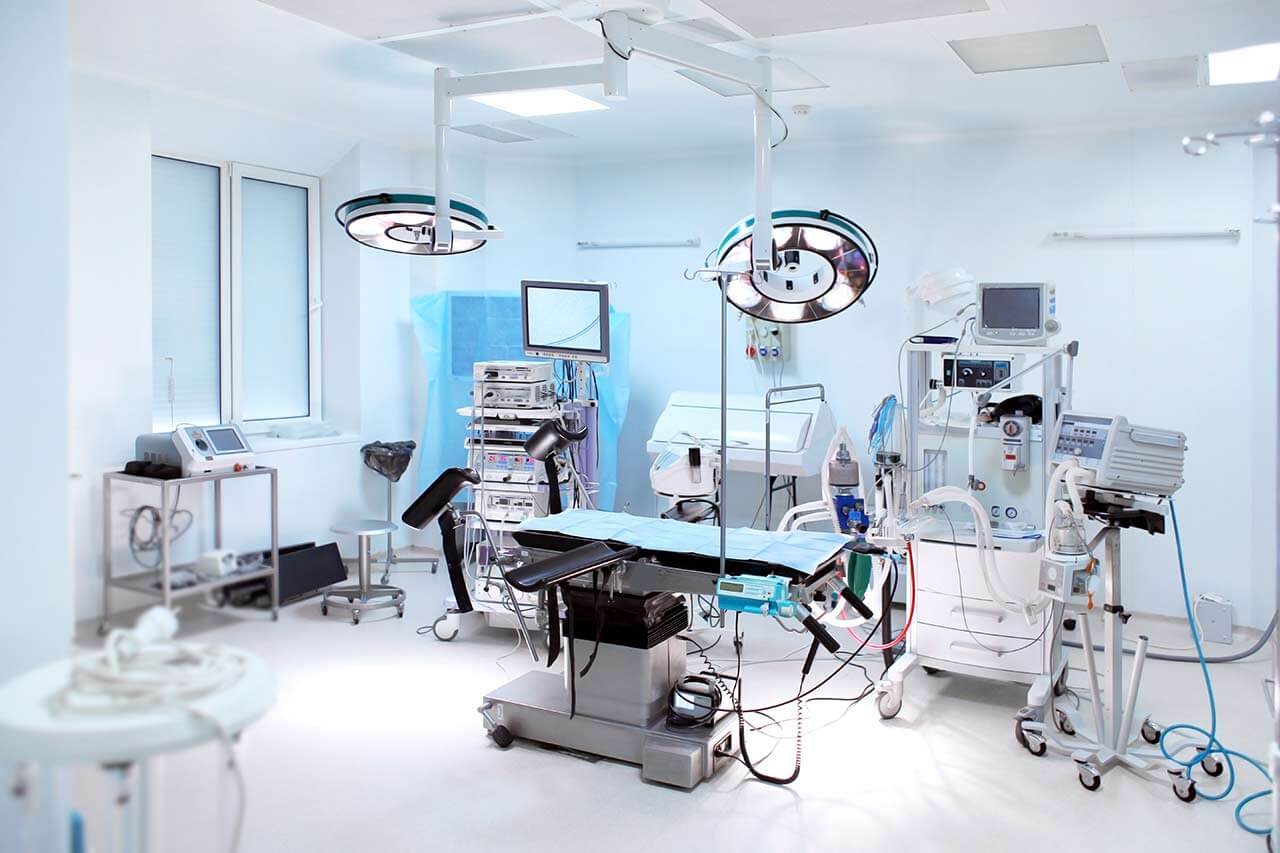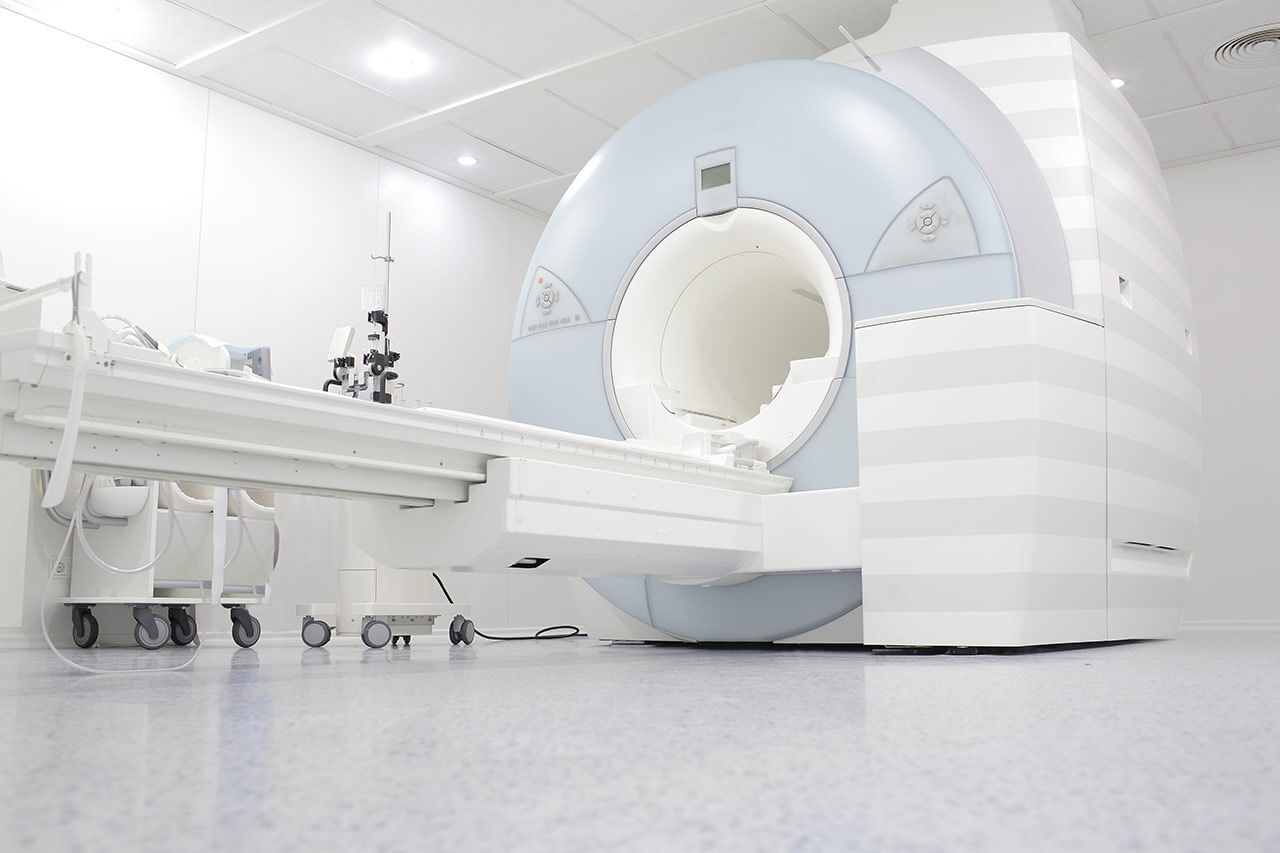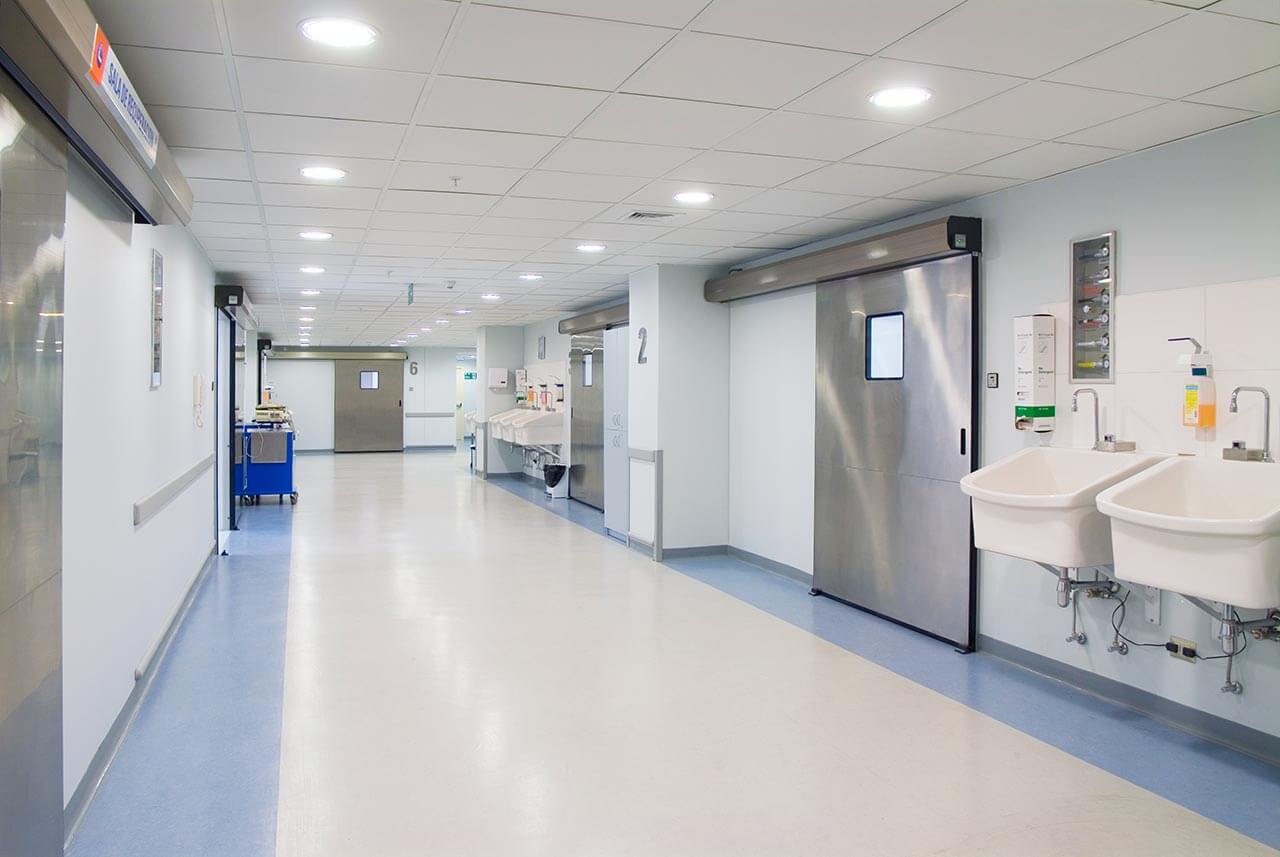
The program includes:
- Initial presentation in the clinic
- clinical history taking
- review of medical records
- physical examination
- laboratory tests:
- complete blood count
- biochemical analysis of blood
- indicators of inflammation
- indicators blood coagulation
- ophthalmologic examination:
- slit-lamp examination
- pupil function tests
- ocular motility test
- ophthalmoscopy
- perimetry (visual field test)
- computer perimetry
- visometry (without correction and with correction)
- keratometry
- pachymetry
- refractometry (objective, subjective, cycloplegic)
- autorefractometry
- non-contact tonometer
- biomicroscopy
- preparation according to preoperative standard
- oculomotor muscle recession (retroposition)
- symptomatic treatment
- control examinations
- the cost of essential medicines and materials
- nursing services
- explanation of future recommendations
Required documents
- Medical records
Service
You may also book:
 BookingHealth Price from:
BookingHealth Price from:
About the department
The Department of Adult and Pediatric Ophthalmology at the University Hospital Halle (Saale) provides a full range of diagnostic and therapeutic services for patients with diseases of the eye and its appendages. The department admits patients of all ages, ranging from young children to the elderly. The department has earned a reputation as a center of excellence in the treatment of corneal diseases. It should be noted that it has gained more than 100 years of experience in the research and development of new methods for the treatment of ophthalmic diseases. Since 1998, one of the largest eye banks in Central Germany (Mitteldeutsche Corneabank Halle) has been operating on the basis of the department, which ensures the selection of the most suitable transplant for each patient. The medical facility has a well-developed laser surgery: selective laser trabeculoplasty, cyclophotocoagulation, YAG laser iridotomy and capsulotomy, phototherapeutic keratectomy, and other laser procedures are performed here. Microsurgical and minimally invasive surgical procedures are also successfully performed in the department. Therapeutic options are complemented by IVOM therapy – intravitreal injections of Lucentis, Avastin, and Ozurdex for the treatment of retinal diseases. In the field of pediatric ophthalmology, special attention is paid to the treatment of retinopathy of prematurity, congenital cataracts and glaucoma, refractive errors, eyelid diseases, strabismus, and eye injuries. The department is headed by Prof. Dr. med. Arne Viestenz.
Patients with glaucoma regularly seek medical help from the department. This pathology disrupts the outflow of aqueous humor from the eye, resulting in optic nerve atrophy and potentially irreversible vision loss. The main diagnostic manifestation of early glaucoma is elevated intraocular pressure. As the disease progresses, visual acuity decreases and peripheral vision deteriorates. Glaucoma most often develops in people over the age of 40, but in rare cases it can occur in children and adolescents. To make a diagnosis, the patient undergoes an examination that includes Heidelberg retinal tomography, optical coherence tomography, computerized perimetry, pachymetry, and tonometry. The department provides both conservative and surgical treatment of glaucoma. Conservative therapy is based on the use of eye drops to normalize intraocular pressure and is indicated for patients with early stages of glaucoma. In other cases, laser procedures or surgery are required: depending on the specific clinical case, selective laser trabeculoplasty, YAG laser iridotomy, cyclophotocoagulation, trabeculectomy, trabeculotomy, canaloplasty, iStent placement, Ahmed valve implantation, or XEN® implantation can be performed.
The medical facility specializes in the treatment of diseases of the sclera, cornea, iris, and ciliary body. The department's physicians offer a variety of effective laser procedures, such as penetrating and lamellar keratoplasty (DMEK and DALK), excimer laser corneal transplantation, crosslinking, and phototherapeutic keratectomy. The optimal type of laser procedure for each patient is selected based on the results of a preliminary examination and diagnosis.
One of the most important areas of daily clinical practice of the department's doctors is the treatment of retinal diseases such as retinal detachment, retinal dystrophy, retinal tears, macular dystrophy, age-related macular degeneration, diabetic retinopathy, retinopathy of prematurity, etc. The department's specialists have an impressive experience in the treatment of the above-mentioned pathologies and have all the therapeutic options to combat them. The medical facility offers laser coagulation, vitreoretinal surgery, and intravitreal injections (IVOM therapy) using highly effective drugs Lucentis, Avastin, and Ozurdex. IVOM therapy is an innovative treatment modality that has been shown to be effective in age-related macular degeneration, retinal hemorrhages, macular edema, and other conditions. Intravitreal injections are performed under local anesthesia with eye drops, so the patient feels no pain or discomfort. The medication is injected directly into the vitreous body. The procedure takes a few minutes and is performed on an outpatient basis, after which the patient can leave the clinic on their own because the injection has virtually no effect on visual acuity. IVOM therapy is administered in a course: in most cases, 3-4 injections are administered during the first month, after which the intravitreal administration of the drug is repeated every 2-3 months; the course of treatment usually consists of 7-8 injections.
The department's main clinical activities include the following:
- Diagnostics and treatment of glaucoma
- Drug therapy
- Selective laser trabeculoplasty
- YAG laser iridotomy
- Cyclophotocoagulation
- Trabeculectomy
- Trabeculotomy
- Canaloplasty
- iStent implantation
- Ahmed valve implantation
- XEN® implant placement
- Diagnostics and treatment of diseases of the sclera, cornea, iris, and ciliary body
- Penetrating and lamellar keratoplasty (DMEK and DALK)
- Corneal transplantation using excimer laser
- Crosslinking
- Phototherapeutic keratectomy
- Diagnostics and treatment of retinal diseases
- Laser coagulation
- Vitreoretinal surgery
- Intravitreal injections (IVOM therapy) using Lucentis, Avastin, and Ozurdex
- Diagnostics and treatment of tumors of the eye and eye appendages
- Surgery to resect tumors of the eye and its appendages
- Eyelid plastic surgery after tumor removal
- Diagnostics and treatment of diseases of the eyelids, tear ducts, and orbit
- Drug therapy for inflammatory processes
- Surgical correction of eyelid deformities
- Probing of tear ducts in children
- Diagnostics and treatment of conjunctival diseases
- Drug therapy
- Surgical procedures
- Diagnostics and treatment of lens diseases
- Laser procedures
- Surgical procedures
- Diagnostics and treatment of diseases of the vitreous body and eyeball
- Laser procedures
- Surgical procedures
- Diagnostics and treatment of diseases of the optic nerve and visual pathways
- Diagnostics and treatment of diseases of the eye muscles, eye movement disorders, and refractive errors
- Diagnostics and treatment of neuro-ophthalmological disorders
- Diagnostics and treatment of other diseases of the ocular apparatus
Curriculum vitae
Higher Education and Professional Career
- 1990 - 1997 Medical studies, Faculty of Medicine, University of Leipzig; internship abroad, Baylor College of Medicine, Houston, Texas, USA.
- 1993 - 2003 Research Fellow, Department of Ophthalmology, University Hospital Erlangen.
- 12.1999 Thesis defense, University of Erlangen-Nuremberg.
- 04.2003 International Council of Ophthalmology (ICO).
- 2005 Board certification in Ophthalmology, Department of Ophthalmology, University Hospital Erlangen.
- 2005 - 2010 Senior Physician, Department of Ophthalmology, University Hospital Magdeburg.
- 02.2008 Habilitation and Venia legendi in Ophthalmology, University Hospital Magdeburg.
- 2011 - 2016 Managing Senior Physician, Department of Ophthalmology, University Hospital Saarland Homburg.
- 2016 Extraordinary Professorship for Ophthalmology.
- Since 02.2017 Head Physician, Department of Adult and Pediatric Ophthalmology, University Hospital Halle (Saale).
- 2018 Representative of the Section for Ophthalmic Traumatology of the German Society of Ophthalmology (DOG).
- 2022 President of the International Society of Ocular Trauma (ISOT).
Photo of the doctor: (c) Universitätsklinikum Halle (Saale)
About hospital
According to the prestigious Focus magazine, the University Hospital Halle (Saale) is one of the best medical institutions in Germany!
The history of the hospital goes back more than 300 years, and during this time it has managed to gain an excellent reputation not only in Germany, but also throughout the world. The hospital positions itself as a specialized healthcare facility for the treatment of severe and rare diseases and injuries. The hospital provides medical care to patients of all ages in compliance with the latest scientific achievements. The hospital is distinguished by successful research activities, especially in the field of cardiovascular diseases and oncopathologies – the specialists in these areas have made significant contributions to the development of the very latest diagnostic methods and therapeutic approaches.
The University Hospital Halle (Saale) has 30 specialized departments representing almost all areas of modern medicine, as well as 17 narrowly focused institutes. About 35,000 patients receive qualified medical care of European standards in the hospital every year, and more than 212,000 patients are served on an outpatient basis. This number of patients is evidence of the high efficiency of medical services and the excellent image of the hospital in the international medical arena; patients from all over the world regularly seek medical attention here.
Some of the hospital's structural units deserve special attention. For example, the Central Emergency Department (the largest in Saxony-Anhalt), modern dental clinics, the Perinatal Center, and the Transplant Center, which has a history of more than 40 years. The Transplant Center performs more than 40 kidney transplants annually, most of them from living donors.
Thanks to the use of the latest medical technologies and the availability of state-of-the-art equipment, many previously high-risk surgeries and procedures can now be performed in the hospital using sparing techniques. In this context, hybrid cardiac surgery and robotic surgery using the innovative da Vinci Si® system in urology are worthy of mention.
An integral part of the successful clinical practice of the University Hospital Halle (Saale) is the availability of experienced and competent medical staff. The total number of employees at the hospital is more than 4,450. Many physicians are known far beyond the borders of Germany: they regularly conduct important research that enables the development of modern medicine. In addition, the hospital specializes in training medical students, so qualified doctors and professors are willing to pass on their experience to the younger generation.
The hospital has many quality certificates such as DIN EN ISO 9001:2015 certificate, German Cancer Society (DKG) certificate, JACIE certificate, EndoCert certificate, ClarCert certificate, German Spine Society (DWG) certificate, German Trauma Society (DGU) certificate, CERT iQ certificate, LGA InterCetert certificate, and others.
Photo: (с) depositphotos
Accommodation in hospital
Patients rooms
The patients of the University Hospital Halle (Saale) stay in comfortable single, double, and triple rooms with a modern design. All patient rooms have an ensuite bathroom with a toilet and a shower. The standard patient room includes a comfortable automatically adjustable bed, a bedside table, a wardrobe, a table and chairs for receiving visitors, a TV, a radio, and a telephone. The patient rooms have access to Wi-Fi. For safety reasons, the use of laptops and cell phones is prohibited in some areas, including the intensive care units. The hospital also offers enhanced-comfort patient rooms.
Meals and Menus
The hospital offers delicious and well-balanced meals three times a day: breakfast, lunch, and dinner. Patients and their companions can choose from three daily menus, which always include dietary dishes. If necessary, an individual menu can be prepared for the patient. Children are offered a special menu with healthy and tasty dishes, rich in nutrients necessary for a growing body.
Further details
Standard rooms include:
![]() Toilet
Toilet
![]() Shower
Shower
![]() Wi-Fi
Wi-Fi
![]() TV
TV
Religion
Religious services are available upon request.
Accompanying person
Your accompanying person may stay with you in your patient room or at the hotel of your choice during the inpatient program.
Hotel
Your accompanying person may stay with you in your patient room or at the hotel of your choice during the inpatient program.




